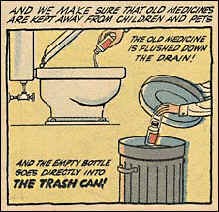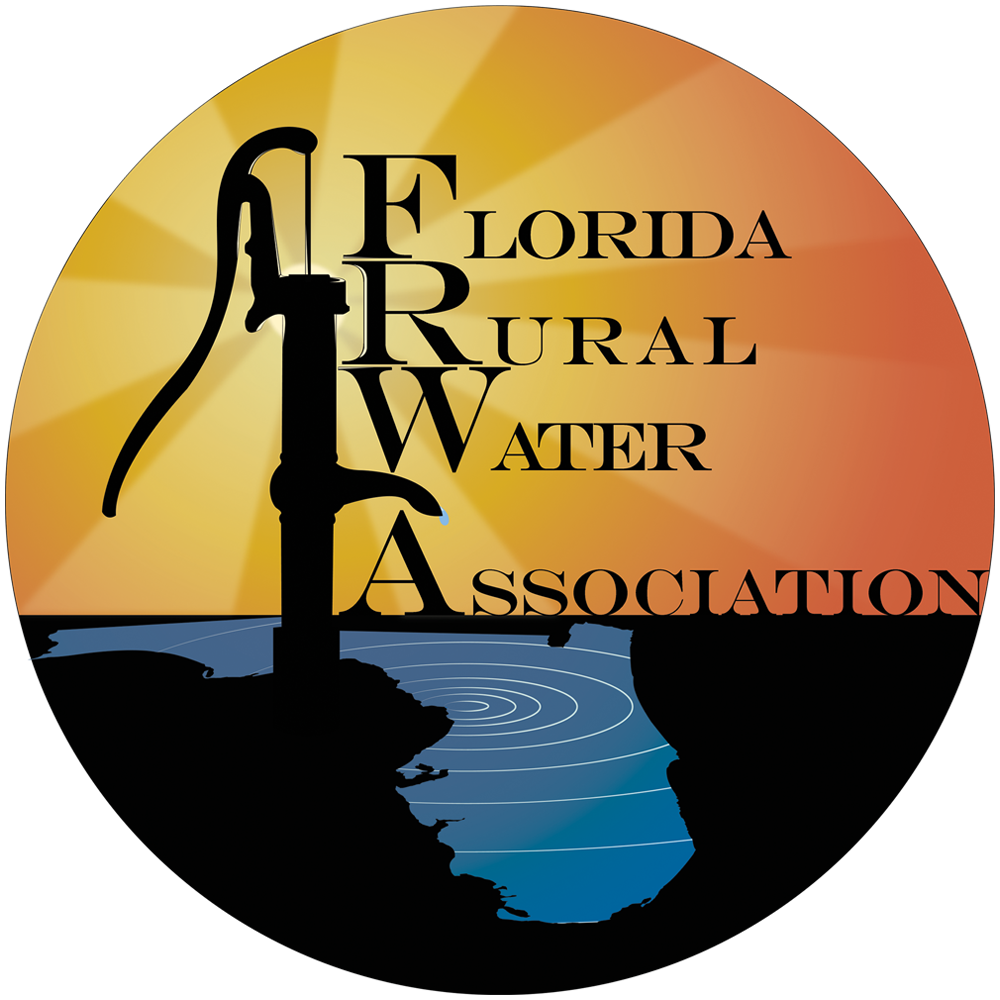Pharmaceuticals
To Flush or Not to Flush...
 These were the instructions given to children in Comic books back in the 60's. Sadly this information is still being suggested by the Food and Drug Administration (FDA) as a proper way to dispose of 21 types of medicines to prevent accidental ingestion by children or pets, but what mechanism is holding the public responsible to the list and stopping them from flushing all their unused medications, including Hormones, Antibiotics, over the counter Pain Medications, etc.?
These were the instructions given to children in Comic books back in the 60's. Sadly this information is still being suggested by the Food and Drug Administration (FDA) as a proper way to dispose of 21 types of medicines to prevent accidental ingestion by children or pets, but what mechanism is holding the public responsible to the list and stopping them from flushing all their unused medications, including Hormones, Antibiotics, over the counter Pain Medications, etc.?
What is the problem with disposing of your medicines in this way?
Although, minimal harmful effects to human health have been attributed from these medicines in the environment, recent discoveries of pharmaceutically polluted waters and abnormal fish are raising fears that our abundant use of drugs may be harming the ecosystem in unforeseen ways.
No, when we swallow medicines anything our body cannot use is released and makes its way to our septic or wastewater systems. Any drug making its way through these systems can greatly increase the concentrations in the environment when these drugs are dumped down the drain at full strength. Septic Systems and Wastewater Systems are not able to treat and remove these pharmaceuticals and therefore they are being released back into the surface waters, which seep down to the groundwater and into our drinking water.
Since we can't tell people to stop taking so much medication, we are suggesting that they stop flushing and throwing medicines in the trash. Each year the Drug Enforcement Administration (DEA) hosts two National Take Back Days, in the Spring and Fall. It is important as a Water or Wastewater Utility or as a Municipality that you get involved with these programs. You will need the assistance of your local law enforcement and you will want to have as many locations as you can throughout your county to allow better access for your residents. DEA will pay the disposal costs and you just need to advertise, advertise, advertise. DEA will supply you with fliers and posters, but understand that their stand is to get drugs off the street. As a water or wastewater utility or environmentalist you want to promote the DON'T FLUSH campaign. You can promote this campaign by posting this information on your city, county, and/or utility websites. There are many cities and counties that have permanent drop boxes for residents to bring their pharmaceuticals for disposal at not cost to them. Advertise this information on your websites, newspapers, radio. If there is not a permanent drop box in your area, then find out how you can get one. Florida Rural Water Association (FRWA) is willing to assist you in anyway to hold extra collection events or in getting information to establish permanent drop boxes in your area.
The next DEA National Take Back Days are held twice a year in April and September at various locations around Florida.
For more information on locations near you then call your local Law Enforcement office and encourage them to contact DEA Miami branch office at (954) 306-4650 and get one established.
